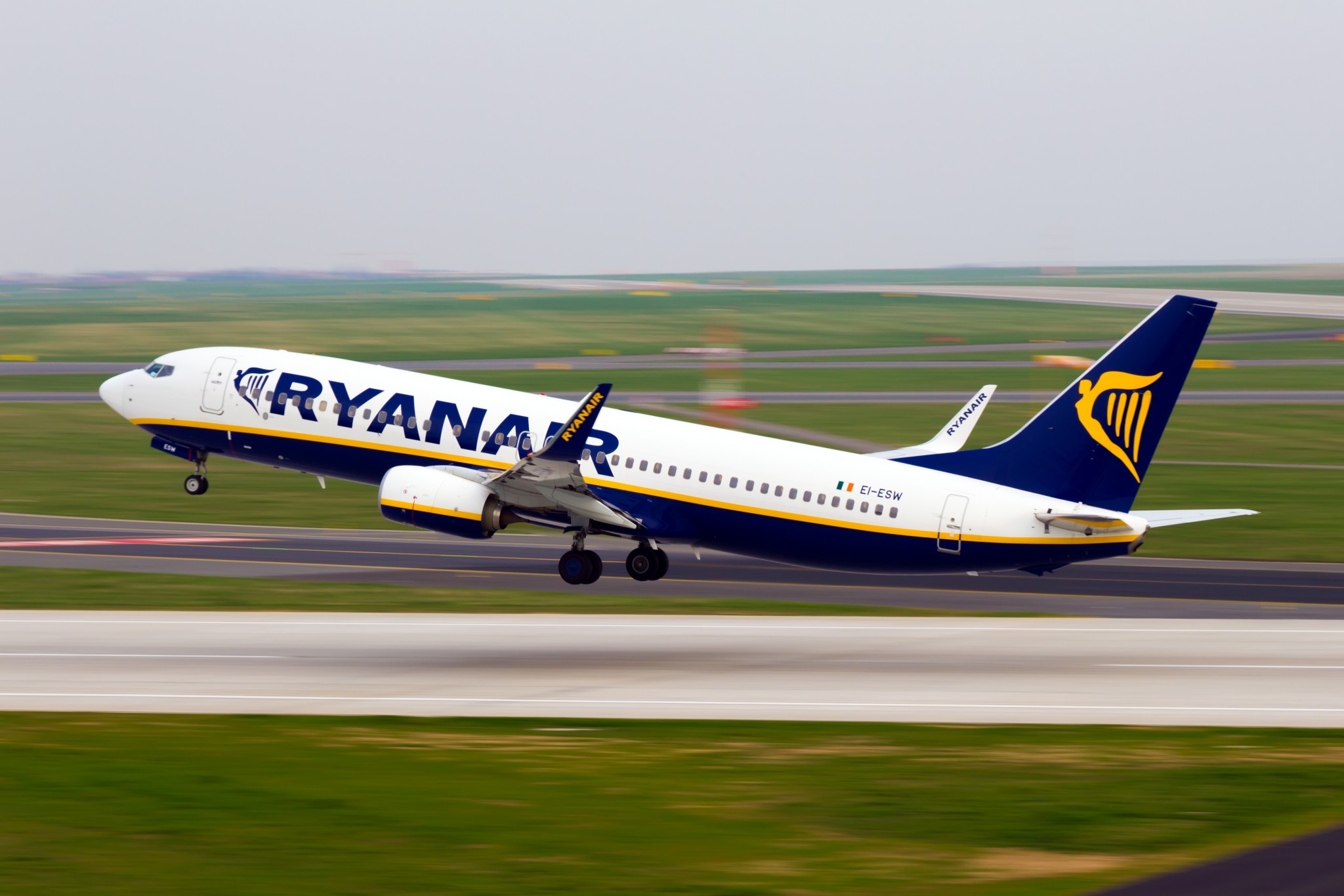Ryanair has revealed it will move to a new group structure at the same time it announced a fall in fortunes during the last quarter. Michael O’Leary confirmed that he will remain with the company for a further five years but as Group CEO of Ryanair Holdings; he will be stepping down as head of the airline. Ryanair states that it will announce a CEO of the airline in due course. Chairman David Bonderman will also step down in summer 2020 to be succeeded by Stan McCarthy, who joined the board in 2017.
Ryanair stated: “Over the next 12 months Ryanair Holdings Plc will move to a group structure not dissimilar to that of IAG. A small senior management team will oversee the development of four airline subsidiaries; Ryanair DAC, Laudamotion, Ryanair Sun and Ryanair UK, each with their own CEOs and management teams.”
Ryanair hopes that, as it expands the Lauda Airbus fleet and take delivery of over 200 new 737 Max aircraft, the group structure will “deliver cost and operating efficiencies, while enabling the group to look at other small scale M&A opportunities like the successful development of Lauda”.
Cost efficiencies will be required in the coming months since the airline has reported its first loss. In the three months to end December 2018, Ryanair posted a pre-tax loss of €22 million compared to a €113 million profit in the prior year quarter. The loss was mainly attributed to weak airfares as competitors flooded the winter market with cut-price fares.
“While a €20m loss in Q3 was disappointing, we take comfort that this was entirely due to weaker than expected air fares so our customers are enjoying record low prices, which is good for current and future traffic growth. While ancillary revenues performed strongly, up 26% in Q3, this was offset by higher fuel, staff and EU261 costs,” said chief executive Michael O’Leary.
During the quarter, Ryanair’s revenue rose by 9% to €1.53bn due to a strong performance in ancillary revenue and increased traffic stimulated by a 6% decline in average fares to under €30 due to excess short-haul capacity in Europe. The airline noted that priority boarding and reserved seating grew strongly in the quarter.
In Q3 ex-fuel unit costs increased by 6%, comprising higher staff costs, including the 20% pilot pay increases, investment in engineering headcount, pilot/cabin crew training, and elevated EU261 costs due to the high number of ATC staff shortages/disruptions in FY19. Ryanair confirmed that it has extended it fuel hedges and are 90% hedged for FY20 at c.$71bbl and 13% hedged for Q1 FY21 at c.$63bbl.
Going into 2019, Ryanair says that it expects more airline bankruptcies in Europe and a continuing reduction in capacity by the major players.
“We expect more closures and airline failures in 2019 due to overcapacity in the European market, which is causing continued fare weakness,” said Ryanair, which also provided its thoughts and a update on Brexit preparations.
“The risk of a “no deal” Brexit remains worryingly high,” reads the statement. “While we hope that common sense will prevail, and lead to either a delay in Brexit, or agreement on the 21 month transition deal currently on the table, we have taken all necessary steps to protect Ryanair’s business in a no-deal environment. We have now obtained a UK AOC to protect our three domestic UK routes, and we will place restrictions on the voting rights and share sales of non-EU shareholders for a period of time (in the event of a hard Brexit) to ensure that Ryanair remains at all times an EU owned and EU controlled airline, even if the UK exits the EU without a deal.”
Ryanair has affirmed its FY19 profit guidance to be in a range of €1.0bn to €1.1bn due to lower winter fares, stronger traffic growth and ancillary sales, as well as slightly better than expected H2 unit cost performance, mainly lower unhedged oil prices.
Meanwhile, the validity of the Cape Town Convention in Brazil was called into question today as a judge in Brazil extended the stay on the repossession of ten aircraft from Avianca Brasil until mid-April, which requires the airline to resume making payments beginning February 1, 2019. In a statement, Aircastle said that this decision is contrary to well-established Brazilian law and The Cape Town Convention and that it intends to appeal the court's decision and plans to take back the aircraft as soon as possible.
Mike Inglese, Aircastle's CEO, stated, "A predictable judicial system and reliable framework for the recovery of aircraft is a principal factor in the cost and availability of capital to airlines. Brazil is the third largest civil aviation market in the world and the country's aviation industry has benefitted from its adoption of Cape Town, enabling Brazil to attract significant foreign capital. While we were fully prepared for an unfavourable ruling, we remain hopeful that the Brazilian Judiciary will respect the rule of law and honour their obligation under The Cape Town Convention. We still expect to recover our aircraft on a timely basis."
Inglese continued, "Our aircraft being operated by Avianca Brazil are modern, desirable aircraft and we expect the aircraft to be placed in a timely manner after repossession. In addition to leasing aircraft to Avianca Brazil, we provide financing to other major airlines in Brazil and have commitments to purchase almost $1 billion in Embraer E2 next generation regional jet aircraft. We believe the judge's decision will negatively impact Brazil's civil airline industry with higher costs and less funding.

